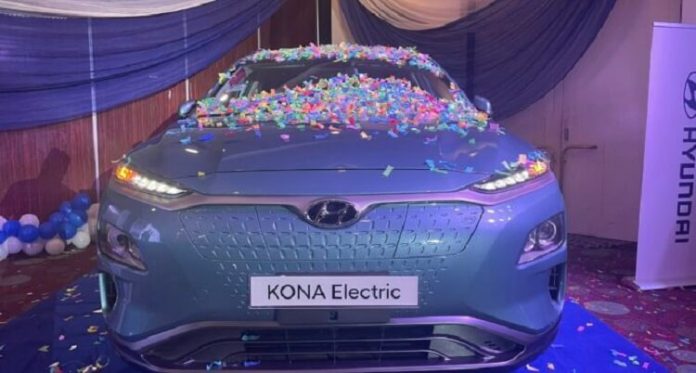The Director-General of National Automotive Design and Development Council, Engr. Jelani Aliyu, has said that the agency would promote the adoption, development, manufacturing and usage of advanced technology in the nation’s automotive sector.
Aliyu who spoke at the recent commissioning of the first solar-powered Electric Vehicle charging station in Lagos, a pilot project in collaboration with the University of Lagos said that this has become very important because the world can no longer afford to continue polluting the environment through the use of fossil fuel and its attendant emission of carbon dioxide, carbon monoxide and methane.
He said “we are now in the Vehicle Electrification era, cars, trucks and buses all powered by electricity.
“A strategic transition from fossil fuel to pure electric power,”explaining that this accounted for the immeasurable support the agency was getting from the Ministry of Industry, Trade and investment in pursuit of the programme.”
Aliyu recalled that the agency had earlier, this year recorded some progress in this regard when the Minister of Industry, Trade and Investment unveiled the first made in Nigeria Electric Vehicle the Hyundai Kona EV, followed by unveiling of the University of Lagos charge station and later by another at the University of Nigeria, Nsukka, having unveiled one in Sokoto earlier.
According to the director-general, “the world is in a race on the back of the eagles and Nigeria cannot afford to be in that race on the back of anything less, neither a falcon nor a hawk, but on the backs of eagles.
“Whatever advanced technology is being leveraged by developed countries around the world must also be identified, transferred and optimised by Nigeria for the betterment of its people.
“We are now in the fourth industrial revolution, characterised by highly advanced technologies, robotics, artificial intelligence, block chain technology and other incredible solutions.
“For the automotive sector, it means vehicles that are highly embedded with ICT solution connectivity between the vehicle and themselves, their users and the road infrastructure. It means vehicles that think for themselves are therefore safer, more efficient and better for humanity.”
Ogundipe described the commissioning as another initiative of Buhari’s administration designed to promote advanced technology transfer and the development of sophisticated human capital in the country, arguing that the project will offer students first-hand experience with latest innovations in mobility and renewable power technology.
He said: “It is strategised to be an effective platform for focused research and development into more applicable vehicle electrification solutions for Nigeria and Africa.”




